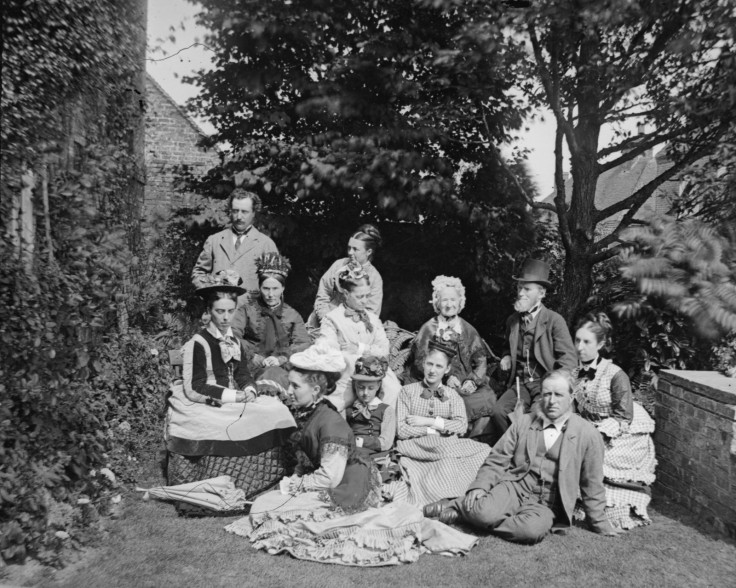Human evolution 'speeding up' as Darwin's survival of the fittest continues to shape us

Humans are still evolving under Darwin's survival of the fittest theory, with the process even speeding up very slightly as we have fewer children.
Using data on over 10,000 individuals spanning around 300 years, researchers at the University of Sheffield and the Uppsala University in Sweden were looking to find out how genetic influence on human evolution has changed as we have fewer children and live longer.
While cultural influences are still the primary driver, findings showed genetic influences have become more important in recent years.
The study, published in the journal Evolution, used genealogical records from Finnish churches starting at the beginning of the 18<sup>th century and that are still being collected today.
By assembling family trees over several generations, the team were able to work out how much of the variation in a given trait was because of genetic influences, and how much was environmental.
In the 1860s, just 67% of children survived to adulthood and on average, people had five children. Fast-forward 100 years, the survival rate was 94% and people had 1.6 children.
Findings showed that despite artificial influences – such as contraception – genetic differences continue to fuel evolution. In the 18<sup>th and 19<sup>th century, between four and 18% of variation was influenced by genes, with the rest driven by environment.
Elisabeth Bolund, one of the study authors, told IBTimes UK: "We were expecting to see these changes, because as long as there is variation in the reproduction of individuals, if some individuals have no children and others have one and others have two, there is still variation, so selection can still operate.
"If these traits that are selected still have a genetic basis, even if it's a small genetic basis like say 4-18%, they can still respond to these natural selection pressures so the traits can change in the population over time.
"But of course if 10% are influenced by genes, this means that the other 90% are influenced by the environment, which includes culture and everything else."

The changes they saw were very small – the time span studied would only be a handful of generations. However, findings showed genetic influence on the timing of reproduction and family size was higher in recent years, meaning modern humans still respond to natural selection and genetic differences continue to fuel change.
"It's not like the genes are taking over. They're becoming a big more important but they are still a minor influence on these complex behaviours we're looking at, like timing of reproduction, are obviously very much influenced by your environment, your culture and so on. But they are to some extent influenced by genes and that is increasing to some extent.
"It's interesting to consider that actually, in modern times, where there aren't so many social rules and normative influences anymore on our behaviour, we're pretty much free to do what we want as individuals when it comes to when to reproducing.
"This might actually mean we allow our genes to influence our behaviour more because before the demographic transition, we had strict social rules for our behaviour that could suppress the expression of the genetic predisposition, so you were forced to do what the cultural norms told you to do.
"Allowing individuals more freedom of choice allows the genetic predisposition to be expressed more on a population level. If you want a sensational line, you could say the potential of the population to respond to natural selection is increasing over time and this could lead to a speeding up of our evolution, but only to a small extent. [But] it's very small changes we're looking at."
© Copyright IBTimes 2025. All rights reserved.






















